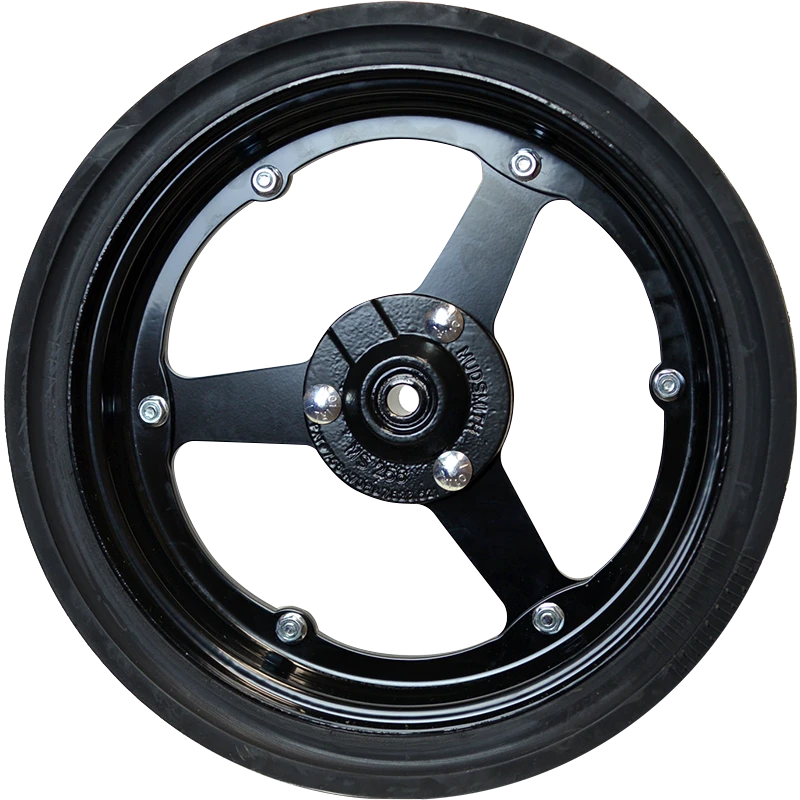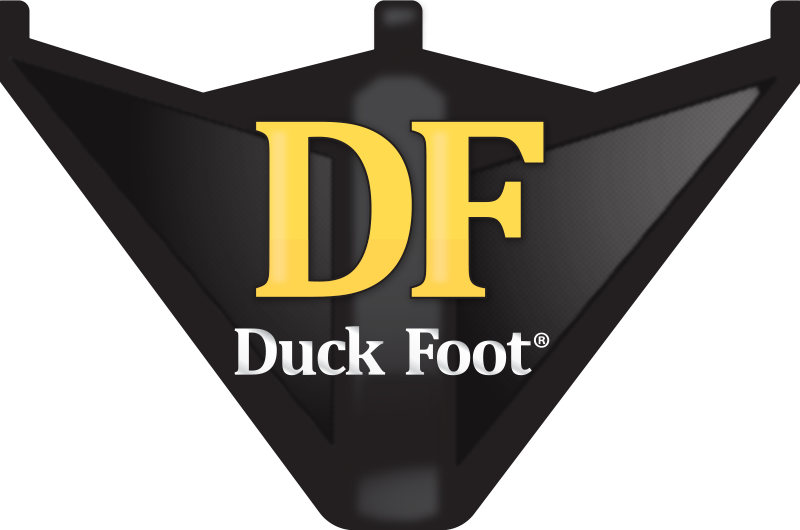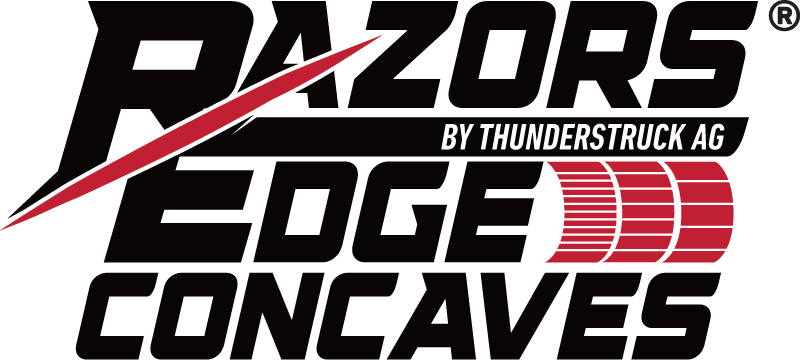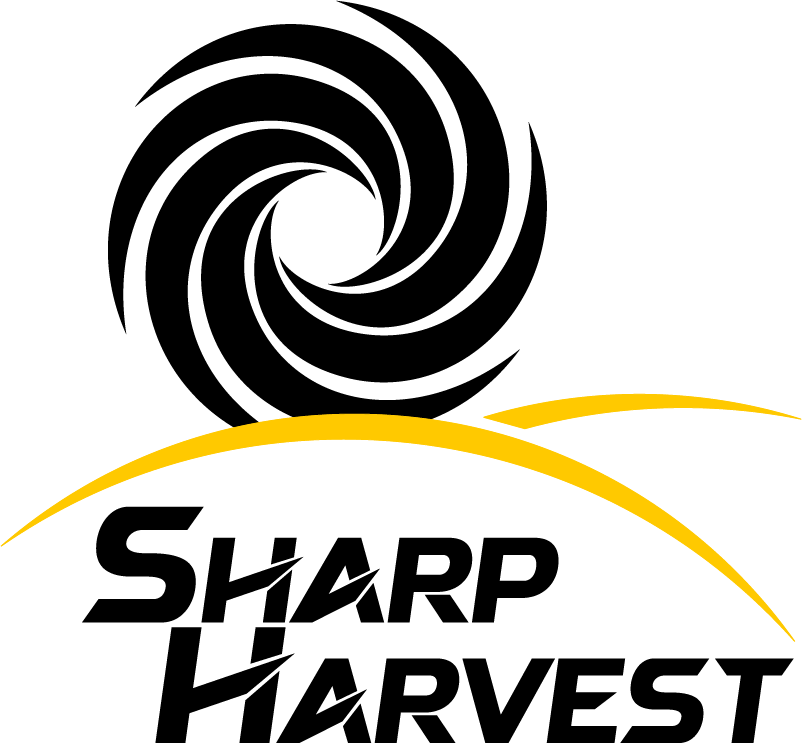Blog Category: Planting
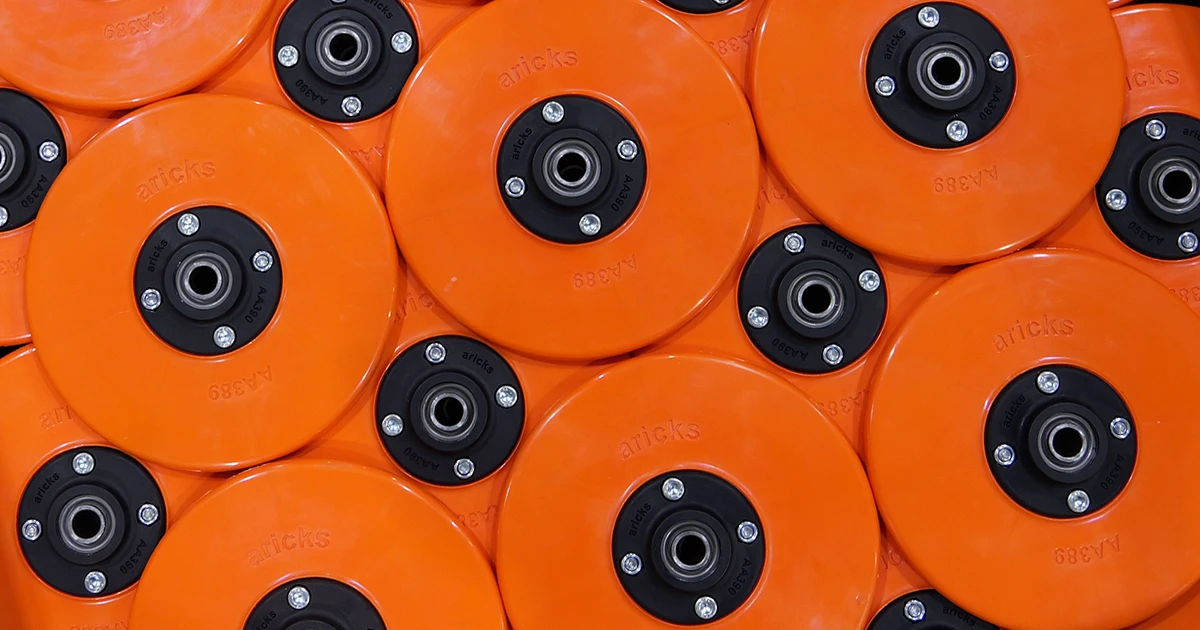
When it comes to successful crop establishment, seed depth consistency is one of the most important, and often overlooked, factors in modern farming. Uneven placement leads to uneven emergence, which ultimately creates competition within the crop row.
» Read more about: Avoiding Uneven Seed Depth: Key Upgrades for Better Germination »
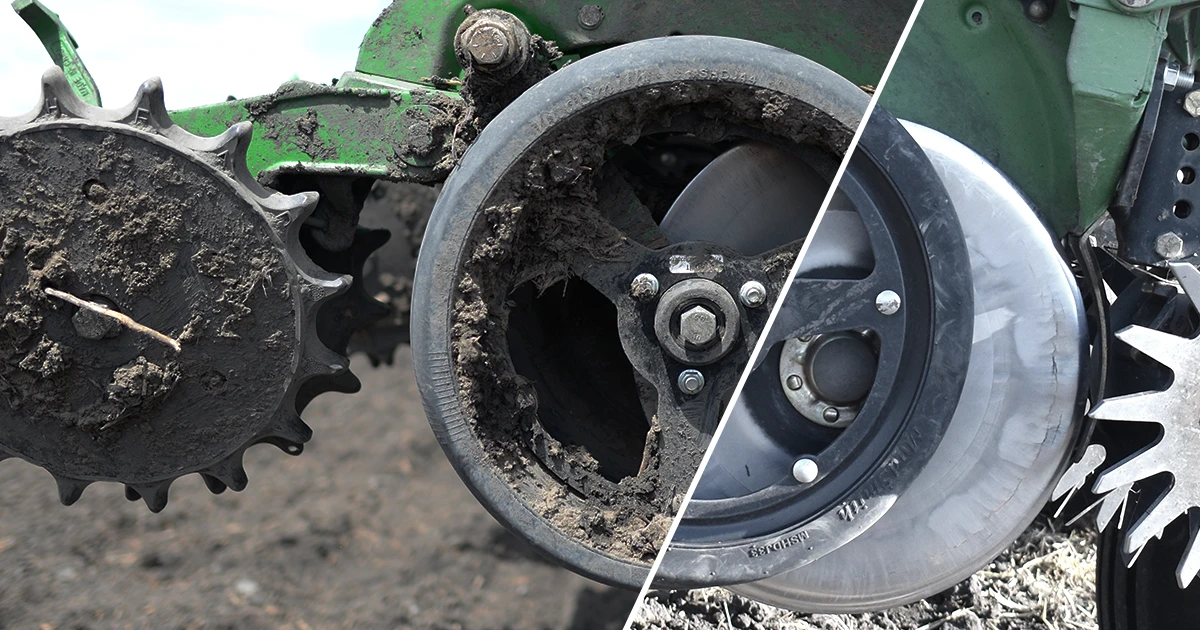
Why MudSmith Gauge Wheels Are the Best Investment for Planting Accurately
Successful planting doesn’t start with seed, fertilizer, or technology, it starts with consistent seed depth, and that depends heavily on your gauge wheels. While many growers focus on monitors, row cleaners, and closing systems, the gauge wheel often gets overlooked. Yet, when it fails, due to plugging, wobbling, bouncing, or premature wear, your seed placement suffers, emergence becomes uneven, and yields take the hit. That’s where MudSmith Spoked Gauge Wheels stand out as one of the smartest upgrades you can make to your planter or drill.
» Read more about: Why MudSmith Gauge Wheels Are the Best Investment for Planting Accurately »

When it comes to successful planting, every component on your drill plays a part, but few have as much direct influence on seed placement as the seed boot. Serving as the final guide before each seed enters the soil, the seed boot helps control placement accuracy, depth consistency, and spacing. When seed boots are worn or loose, seeds can bounce, drift, or drop inconsistently, leading to patchy emergence and lower yield potential.
» Read more about: The Role of Seed Boots in Planting & How to Keep Them in Top Shape »
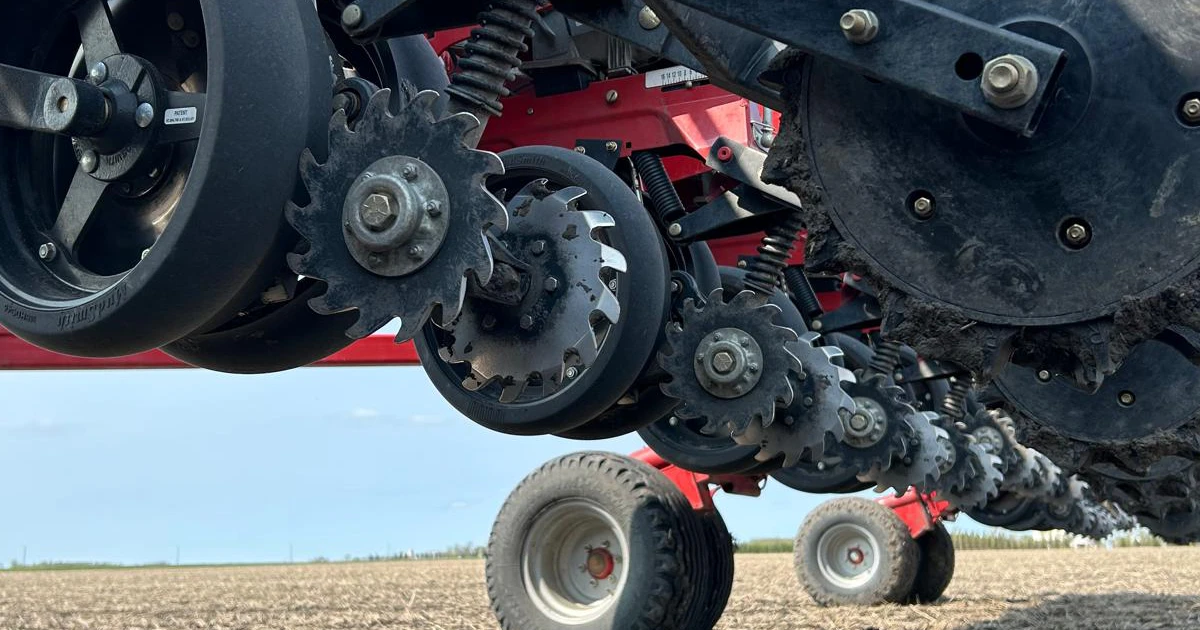
Martin-Till Razor Wheel Residue Clearing Performance: What You Need to Know
The Martin-Till Razor Wheel is a standout product in residue management, specifically designed to cut through heavy residue while maintaining soil integrity. Its innovative design ensures clean and consistent planting conditions even in the most challenging fields. In this article, we will cover its key features and the advantages it offers to modern farming operations.
» Read more about: Martin-Till Razor Wheel Residue Clearing Performance: What You Need to Know »
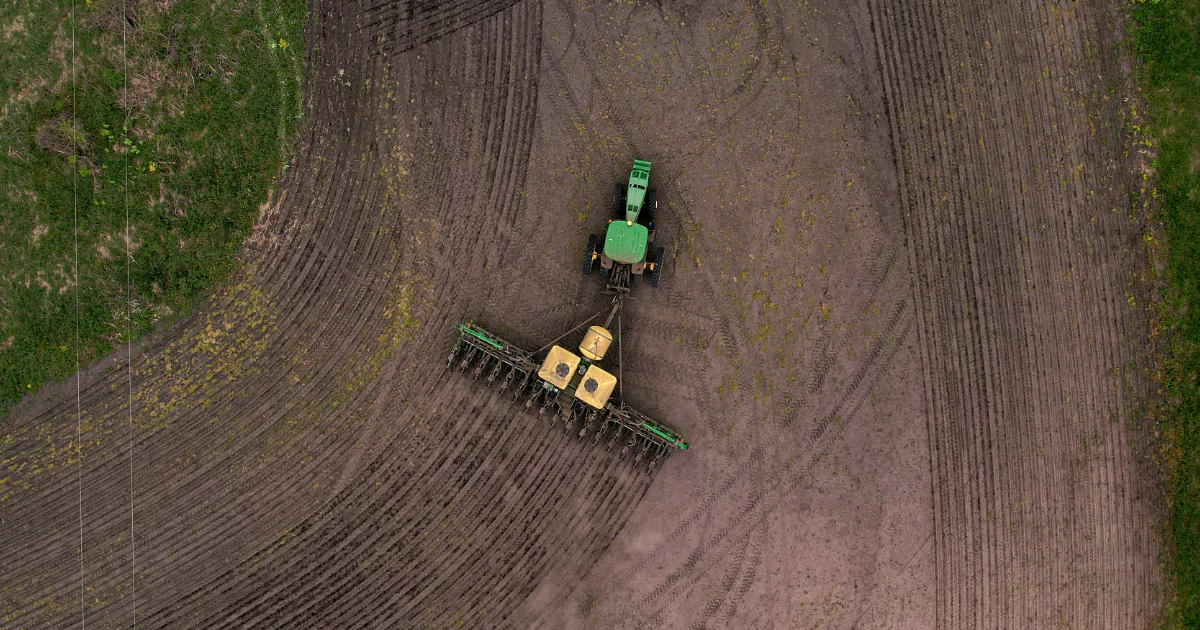
Most farmers don’t think about gauge wheel axles until something starts to wear out. But once they do, the drill doesn’t run the same. A worn axle means the gauge wheel wobbles, the opener doesn’t stay steady, and seed depth gets inconsistent. Shallow here, deep there, pretty soon you can see it in the rows.
» Read more about: How Non-Greasable Gauge Wheel Axles Improve Seeding Accuracy »
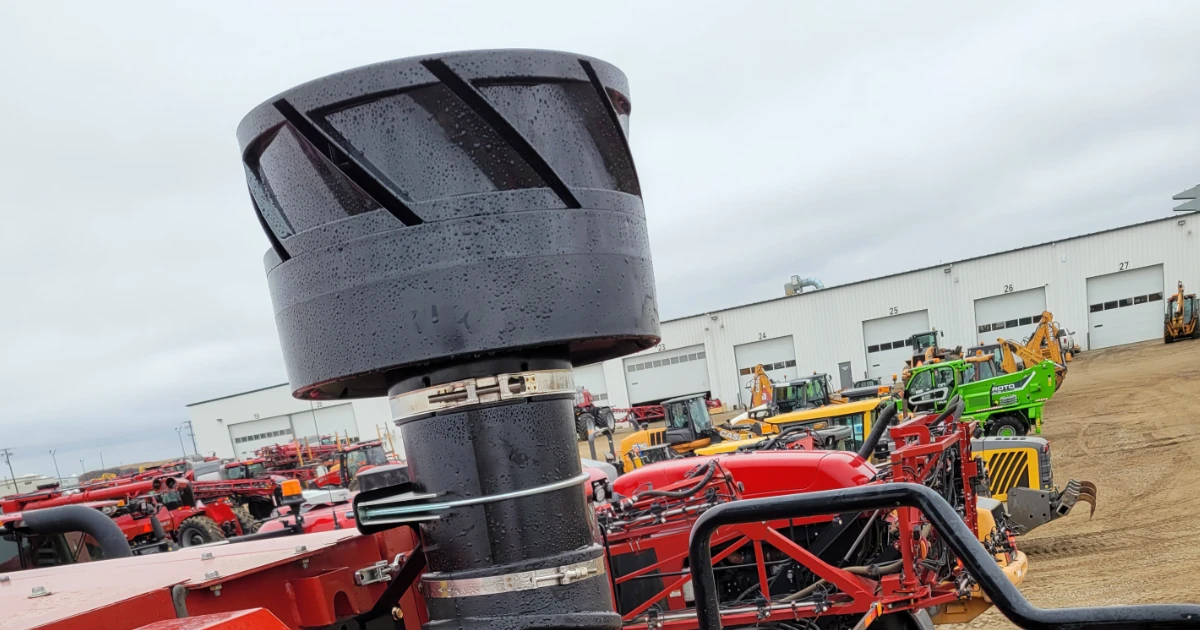
What is the KAS Pre-Cleaner? The Simple Upgrade That Protects Engines, Cuts Costs, and Keeps You Running
Dust always wins. It plugs filters, cuts horsepower, burns more fuel, and shuts machines down at the worst possible time. Whether you’re running a combine, tractor, skid steer, or industrial equipment, dirty air is one of the quietest profit-killers on the farm.
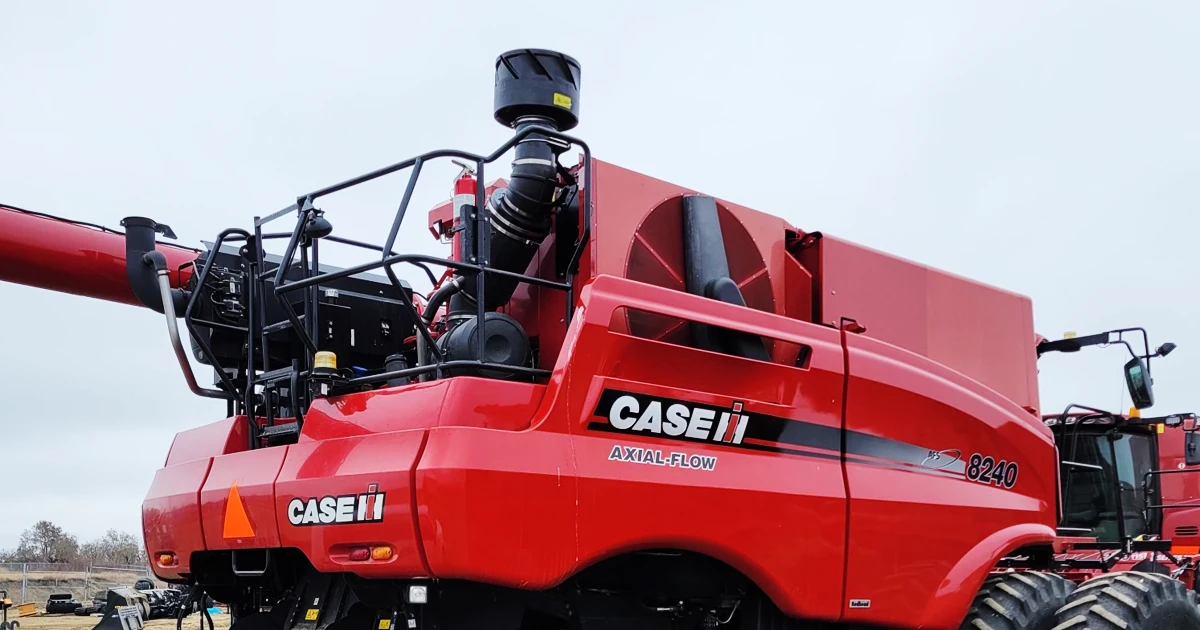
How Long Will My KAS Filter Last?
The KAS Pre-Cleaner is one of those upgrades that pays for itself faster than you expect, and the KAS pre cleaner benefits show up almost immediately. It mounts to your machine’s air intake and spins out debris before it ever reaches your main air filter. That means less restriction, cleaner air to your engine, and far fewer filter changes. It’s a simple, effective way to extend service intervals and keep you running.
Unlike a basic pre-screen,
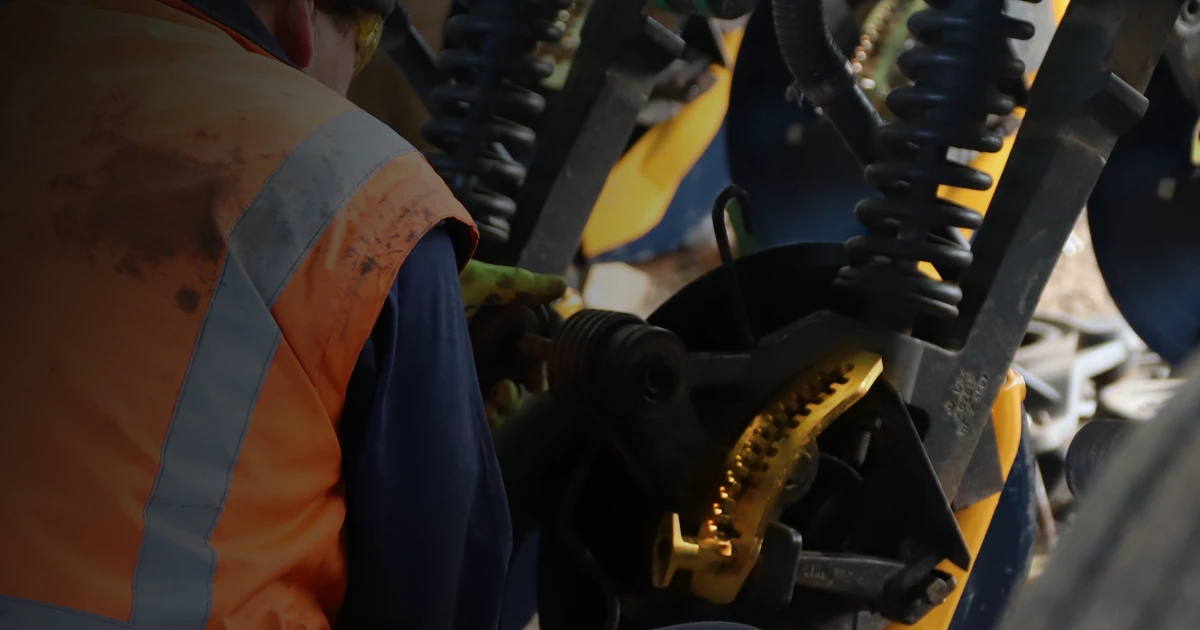
Your Cover Plates and T-Handles control where the gauge wheels actually run and that’s what decides how even your stand turns out. When these parts loosen or wear down, seed depth starts to wander, and it shows in the rows. Staying on top of this small piece of maintenance keeps your emergence consistent and your yield potential intact.
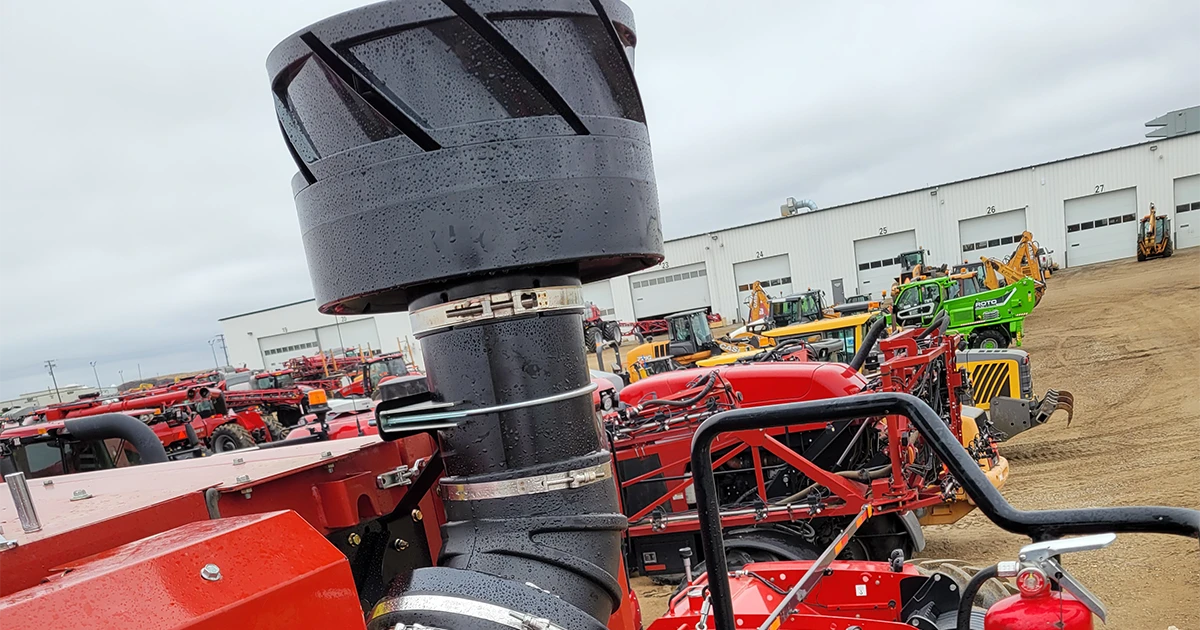
Why the KAS Pre-Cleaner Is a Must-Have for Skid Steers, Tractors & Combines
Keeping machines running in dusty, high-debris environments has always been a challenge. That’s where the Redekop KAS Pre-Cleaner comes in. It’s a smart, simple upgrade designed to protect your engine and reduce the number of air filter changes throughout the season. Built for combines, skid steers, tractors, and more, it’s an easy win for better uptime and longer machine life.
» Read more about: Why the KAS Pre-Cleaner Is a Must-Have for Skid Steers, Tractors & Combines »
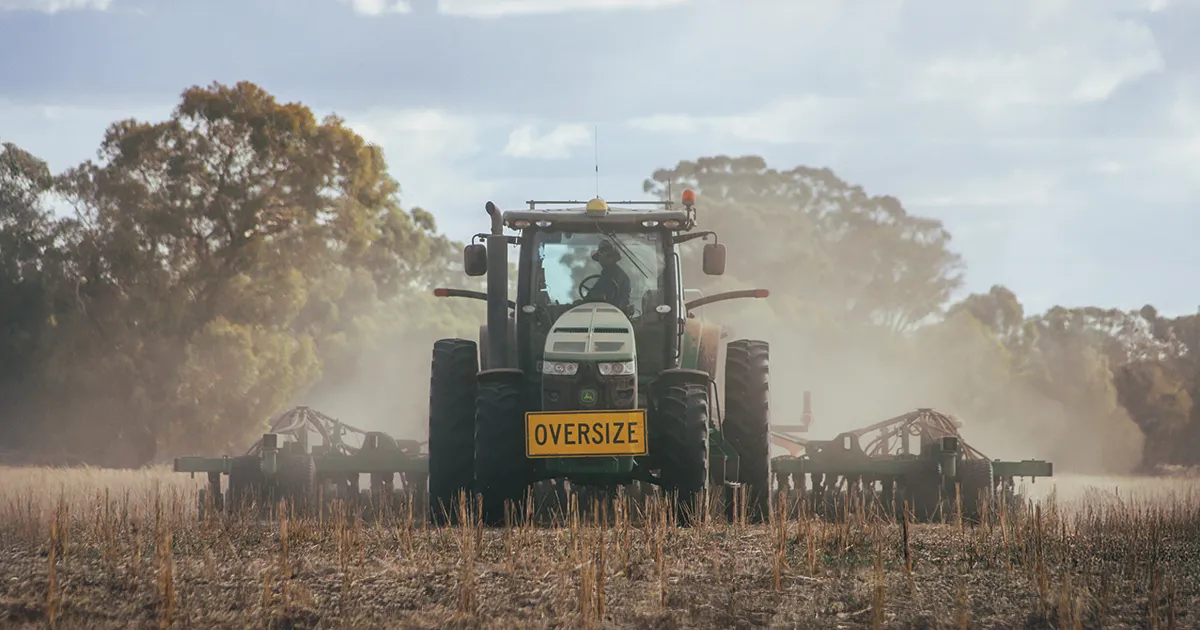
A straightforward guide to clearing residue without losing moisture, stand, or speed.
» Read more about: Residue Management Myths: What Canadian Air Seeder Operators Get Wrong »
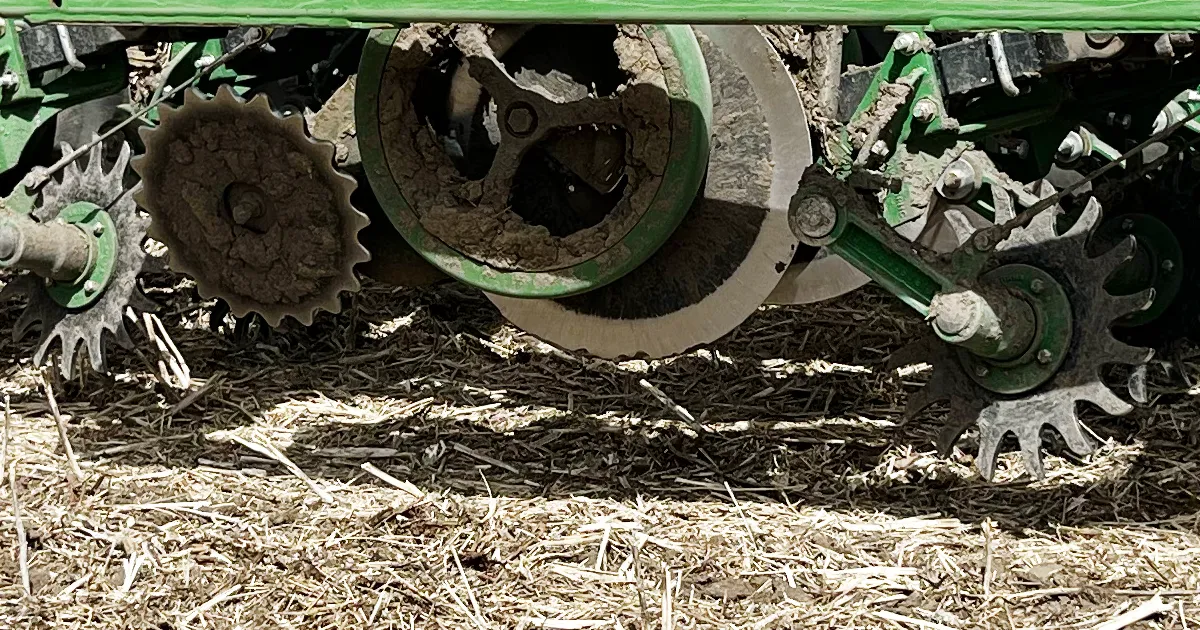
Residue is a good sign, proof your soil is healthy, your yields were solid, and your ground is protected. But when it comes time to plant, that same residue can quickly become your biggest challenge. Keep reading for residue management tools for better crop emergence!
Hairpinning. Uneven depth. Cold, wet seedbeds. Poor emergence. You’ve likely seen it all if you’re seeding into heavy or damp residue. And while no-till practices have clear long-term benefits,
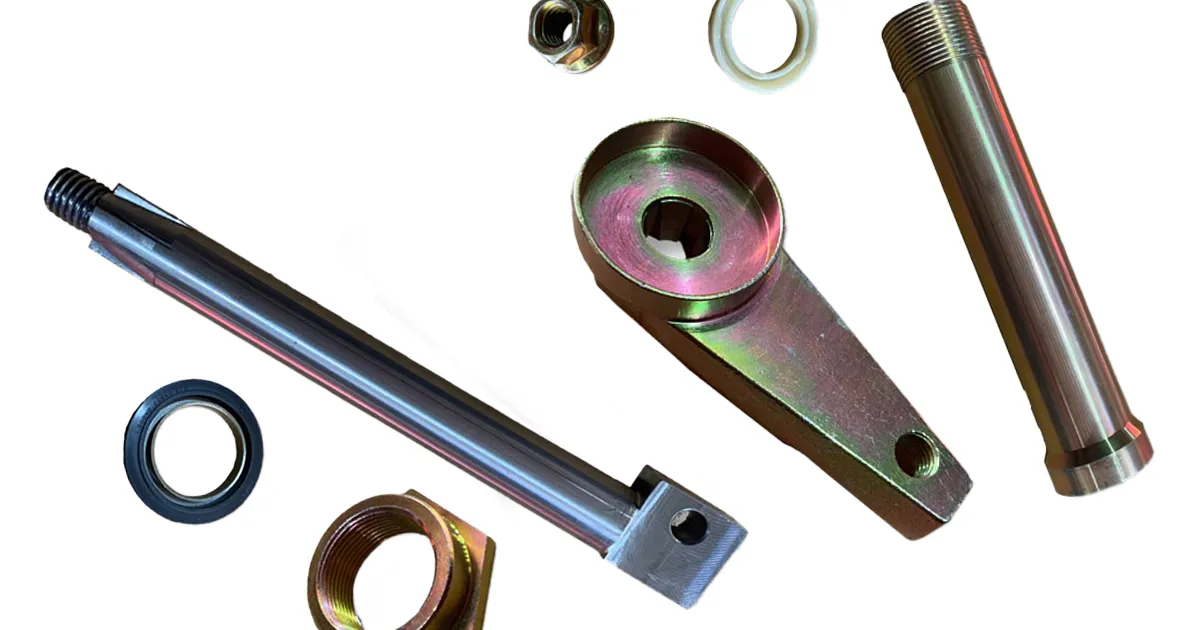
The Hidden Costs of Greasable Parts: Why Switching to Non-Greasable Saves in the Long Run
Let’s be honest—no one wakes up excited to grease equipment. It’s messy, time-consuming, and always seems to get bumped down the list when harvest is on, cows are out, or the weather just won’t cooperate. But here’s the kicker: while greasing might seem like a small task, those “little” maintenance jobs can really add up over time—both in labor and cost.

Residue management might not be the flashiest part of your drill setup, but when it’s not doing its job, it shows up fast. Whether it’s plugging, poor seed placement, or uneven emergence, the wrong residue manager can cost you in both yield and time.
» Read more about: Side-by-Side: Comparing the Top Residue Managers for John Deere Drills »

If there’s one thing a farmer doesn’t want to see during planting season, it’s hairpinning. You’ve done all the prep, conditions seem right, but then that trash gets pushed into the furrow instead of being cleared—and suddenly you’re dealing with poor seed-to-soil contact, uneven emergence, and lost yield potential.
It’s frustrating. It’s avoidable. And that’s where the Aricks Residue Manager comes in.
» Read more about: Preventing Hairpinning: How the Aricks Residue Manager Stands Out »

If you’re tired of spending valuable hours under your air seeder with a grease gun, this one’s for you.
Upgrading to Aricks Non-Greasable Bush Kits is one of those changes that seems small… until you experience just how much time, frustration, and wear it saves. Let’s break down why these bush kits are quickly becoming a no-brainer upgrade for farmers who want durability without the daily hassle.
» Read more about: Are Non-Greasable Bush Kits Worth It for Air Seeders? »

Lip Wear is Killing Your Gauge Wheels—Here’s How to Stop It
If you’ve ever dealt with worn-out gauge wheels, you know how frustrating it can be. One season they’re working fine, and the next, they’re barely holding up. The culprit? Premature lip wear. When the lip on your gauge wheel wears down too quickly, it directly impacts your planter’s performance—leading to uneven seed depth, poor seed-to-soil contact, and ultimately, lower yields. But why does it happen, and more importantly, how can you stop it?
» Read more about: Lip Wear is Killing Your Gauge Wheels—Here’s How to Stop It »

When it comes to planters and drills, we all tend to focus on the “big stuff” — openers, gauge wheels, seed boots. But often, it’s the small parts that quietly cause the biggest headaches. Case in point: your cover plates and T-handles.
» Read more about: Why Your Seeder’s Losing Depth (and How to Fix It Fast) »

Martin-Till 1360 Floating Row Cleaner Specifications: Your Complete Guide
The Martin-Till 1360 Floating Row Cleaner is a game-changer for farmers seeking efficient residue management and superior planting performance. Built for durability and versatility, this row cleaner is a trusted solution for producers who need reliable tools to handle heavy residue and varying field conditions. In this article, we’ll explore the key specifications, features, and benefits of the Martin-Till 1360 Floating Row Cleaner to help you determine if it’s the right fit for your operation.
» Read more about: Martin-Till 1360 Floating Row Cleaner Specifications: Your Complete Guide »

Do Your Seed Firmers Hold Up Over Time?
Why Consistent Firming Pressure Makes All the Difference
When it comes to planting, the difference between having a bumper crop or having a disappointing yield often comes down to one thing: consistent seed-to-soil contact. And while many seed firmers may seem similar at first, the real difference shows up after a few hundred acres.
» Read more about: Do Your Seed Firmers Hold Up Over Time? »

True Singulation Matters: Get It Right for Crops Like Canola and Sesame
When you’re planting small seeds like canola or sesame, even spacing isn’t just nice to have—it’s everything. The trouble is, most seed disks out there just aren’t made for the job. They’re built for more general crops, and that can lead to skips, doubles, and uneven emergence that cost you yield before the season even gets going.
That’s where the RRV Seed Disk comes in.
» Read more about: True Singulation Matters: Get It Right for Crops Like Canola and Sesame »

Martin-Till Weight Transfer System Installation Guide: Step-by-Step Instructions
The Martin-Till Weight Transfer System is an essential tool for ensuring proper weight distribution across planters, enhancing performance and reducing wear on equipment. This guide will walk you through the step-by-step installation process and provide tips for optimal usage.

Let’s talk about something every farmer knows all too well—greasing.
It’s one of those necessary evils. Before the drill hits the field each week, you’re under the rows with the grease gun, giving each gauge wheel axle its dose. You know it keeps things running smooth and prevents early wear, but let’s be honest—it’s tedious. And if you’ve got a big drill planter, it eats up a chunk of time you could be using planting.
» Read more about: Cut Weekly Maintenance: How Non-Greaseable Gauge Wheel Axles Save Time & Money »

The Truth About Premature Wear in Seed Firmers (And How to Prevent It)
If you’re noticing uneven emergence, inconsistent seed depth, or gaps in your stand, your seed firmer might be the culprit. Traditional seed firmers wear out quickly, losing the ability to maintain proper pressure and seed placement. Over time, this results in lost yield potential and higher replacement costs.
» Read more about: The Truth About Premature Wear in Seed Firmers (And How to Prevent It) »

Martin-Till fCrusher Closing Wheel Benefits: How It Enhances Your Planting
The Martin-Till fCrusher Closing Wheel is an essential tool for achieving optimal seed trench closure and ensuring uniform crop emergence. Engineered for both no-till and conventional tillage systems, the fCrusher delivers unparalleled performance in maintaining soil structure and promoting healthy plant growth. This article highlights the key benefits and features of the fCrusher Closing Wheel.
» Read more about: Martin-Till fCrusher Closing Wheel Benefits: How It Enhances Your Planting »

Wobbly Gauge Wheels? Here’s Why It’s Hurting Your Crops
If you’ve ever walked your fields and noticed uneven emergence, thin stands, or erratic plant spacing, your planter’s gauge wheels might be to blame. Specifically, wobbly gauge wheels caused by worn-out bearing hubs can quietly sabotage your planting accuracy, leading to costly stand establishment issues.
The Problem: Worn Bearing Hubs = Wheel Wobble
Gauge wheels play a critical role in maintaining consistent seed depth by regulating the contact between your planter opener and the soil.
» Read more about: Wobbly Gauge Wheels? Here’s Why It’s Hurting Your Crops »

Still Fighting Row Unit Bounce? Start by Looking Upstream.
You know the feeling—your planter’s in the ground, the monitor looks fine, but something’s off. Then you look back and see the row units bouncing. It’s frustrating, and it’s costing you even emergence. The thing is, row-unit bounce can have a few different causes—everything from downforce issues to planting too fast, to gauge wheels that aren’t quite dialled in.
But one of the most overlooked (and easily fixable) factors? Residue that’s not being cleared properly.
» Read more about: Still Fighting Row Unit Bounce? Start by Looking Upstream. »

Martin-Till UMO150 Unit Mounted Fertilizer Opener Compatibility Guide
When it comes to precision fertilizer placement, the Martin-Till UMO150 Unit Mounted Fertilizer Opener stands out as a reliable and efficient solution. Designed for compatibility with a wide range of planters, the UMO150 ensures accurate nutrient delivery to promote healthy crop growth. In this guide, we’ll cover its compatibility and the advantages it brings to your planting operation.
» Read more about: Martin-Till UMO150 Unit Mounted Fertilizer Opener Compatibility Guide »

Air Pockets Are Killing Your Germination-Here’s How to Fix It
Planting is all about giving your seeds the best possible start. But if air pockets are lurking in the seed trench, they could be costing you valuable yields. Poor seed-to-soil contact leads to uneven emergence, weak stands, and ultimately, lost bushels. The good news? Flo-Rite Seed Firmers can fix the problem.
» Read more about: Air Pockets Are Killing Your Germination-Here’s How to Fix It »

Why Slow Planting is Costing You Yields—And How the RRV Seed Disk Speeds Things Up
Every grower knows that planting is a race against time. The weather window is tight, and every delay puts your yield potential at risk. But what if your planter is holding you back? Traditional seed disks struggle with small seeds, forcing you to slow down to maintain accuracy. That lost efficiency can make the difference between a well-established crop and one that struggles from the start. That’s where the RRV Seed Disk changes the game.

Residue managers are crucial additions to your John Deere air seeder, designed to clear residue from the opener’s path, reducing hair-pinning and enhancing overall seeding performance. Maintaining these parts is essential for ensuring that your air seeder operates efficiently, even in high-residue environments. In this blog post, we’ll discuss the role of residue managers, how to inspect them for wear, and why regular maintenance is key to maximizing the lifespan and effectiveness of your equipment.
» Read more about: Optimize Your John Deere Air Seeder with Properly Maintained Residue Managers »

Cover plates and T-handles are integral components of your John Deere air seeder, playing a crucial role in setting and maintaining the depth of the gauge wheel. Consistent seeding depth is vital for uniform crop emergence and maximizing yield potential. In today’s post, we’ll explore the importance of maintaining these parts, how to inspect them for wear, and when to replace them to ensure your air seeder continues to operate at peak efficiency.

Seed tubes in your John Deere air seeder are essential for connecting the seed boot to the seed tubing, ensuring that seeds are delivered to the soil without friction or blockage. These components help in maintaining the efficiency and accuracy of your seeding operations. In this article, we’ll explore why maintaining seed tubes is vital, how to inspect them for wear, and when replacement is necessary to keep your air seeder running smoothly.
The Role of Seed Tubes
The metal seed tube on your Disc Drill is there to guide seed and/or fertilizer from the manifold tower/distribution head (Air Drill) or Hopper (Box Drill) to the seed boot.
» Read more about: The Importance of Maintaining Seed Tubes in Your John Deere Air Seeder »

Say Goodbye to Plugging: How MudSmith Gauge Wheels Keep You Rolling
Nothing slows down planting quite like mud buildup in your gauge wheels. If you’ve ever had to stop mid-field to dig out packed mud, you know the frustration—and the lost time. Traditional gauge wheels struggle in wet, sticky conditions, leading to constant clogging, increased downtime, and uneven seed placement.
But there’s a solution.
» Read more about: Say Goodbye to Plugging: How MudSmith Gauge Wheels Keep You Rolling »

The Seed Boots on your John Deere air seeder play a pivotal role in ensuring precise seed placement within the furrow. Proper seed placement is crucial for uniform crop emergence and optimal yields. In this article, we’ll delve into the importance of maintaining these essential John Deere air seeder parts, how to inspect them for wear, and when to consider upgrades or replacements to keep your equipment performing at its best.

Planter vs. Air Drill: Why the RRV Canola Disk is the Game-Changer You Need
When it comes to planting canola, precision is everything. A successful crop starts with optimal seed placement, consistent depth, and uniform spacing, all of which directly impact germination rates and yield potential. If you’ve been using an air drill for canola seeding, you might be leaving yield on the table. The RRV Canola Disk, paired with a planter, offers a transformative alternative that’s worth considering.
» Read more about: Planter vs. Air Drill: Why the RRV Canola Disk is the Game-Changer You Need »

How to Maintain Press and Firming Wheels for Optimal Performance in Your John Deere Air Drill
Press and firming wheels are vital components of your John Deere air drill, ensuring that seeds are properly pressed into the soil for optimal seed-to-soil contact. This step is crucial for achieving uniform germination and maximizing crop yield. We want to discuss the importance of maintaining these essential John Deere air drill parts, how to inspect them for wear, and when to consider replacement to keep your equipment performing at its best.

The Key Role of Closing Wheels in John Deere Grain Drills and How to Keep Them in Top Shape
The closing or cruiser wheels on your John Deere grain drill are essential for finalizing the seed-to-soil contact by pushing soil back into the furrow. This ensures that the seed is securely covered, promoting even germination and protecting the seed from environmental stressors. In this article, we’ll explore the importance of maintaining these crucial John Deere grain drill parts, how to inspect them for wear, and when to consider replacement.

Martin-Till Smart Clean™ Row Cleaner Adjustment System Features: Everything You Need to Know
The Martin-Till Smart Clean™ Row Cleaner Adjustment System is a game-changing innovation for modern planting operations. Designed to provide unmatched precision and ease of use, this pneumatic adjustment system allows operators to adjust row cleaner downforce directly from the tractor cab. In this article, we’ll explore the features and benefits of the Smart Clean™ system and why it’s a must-have for your planting setup.

The Importance of Rebuilding Closing and Press Arm Pivots in Your John Deere Air Seeder
Maintaining your John Deere air seeder is crucial for ensuring it operates efficiently season after season. One of the most overlooked yet vital components of this maintenance is the closing arm and press arm pivots. These parts absorb horizontal impact forces and allow for the vertical movement necessary to apply consistent downforce. Below you’ll find the importance of these components, how to inspect them, and why they should be a key focus during air seeder rebuilding.

Keep Your John Deere Air Seeder Running Smoothly with Properly Maintained Gauge Wheel Arm Axles and Arms
The gauge wheel arm axles and arms on your John Deere air seeder are pivotal components that allow for precise depth adjustment and smooth operation of the gauge wheels. Proper maintenance of these parts is essential for ensuring consistent seeding depth and overall equipment performance. In this blog, we’ll discuss the importance of these components, how to inspect them for wear, and when to consider replacement to keep your air seeder running smoothly.

Why Gauge Wheels Are Vital in Your John Deere Air Seeder Rebuild
The longevity and efficiency of your John Deere air seeder heavily rely on the condition of its components. Among these, the gauge wheels and their related parts are crucial for maintaining the correct seeding depth and ensuring consistent furrow creation. In this blog, we will discuss the importance of these components, how to inspect them, and why incorporating them into your John Deere air seeder rebuild plan is essential for optimal performance.
» Read more about: Why Gauge Wheels Are Vital in Your John Deere Air Seeder Rebuild »

Why MudSmith Gauge Wheels Outperform the Competition (and Solve Your Plugging Issues)
In modern farming, efficiency is everything—every second spent adjusting, fixing, or clearing out equipment problems is lost time and revenue. A common culprit for downtime during planting is plugging, especially around the gauge wheels. Enter MudSmith Gauge Wheels, a heavy-duty, American-made solution designed to tackle plugging at its source. In this article, we’ll explore how MudSmith Gauge Wheels compare to and stand out in a market that includes other spoked gauge wheel options like Yetter,

When maintaining the efficiency of your John Deere air seeder, one of the most critical components to focus on is the discs. These discs are essential John Deere air seeder parts that play a significant role in creating the perfect seed furrow. In this post, we’ll explore why maintaining these discs is vital, how to inspect them, and the importance of timely replacement to ensure consistent seeding performance.

Maximizing Drill Efficiency: How Main Pin and Bush Kits Keep Your John Deere Drill Running Smoothly
When it comes to maintaining the precision and effectiveness of your John Deere drill, the importance of quality John Deere drill parts, like the Main Pin and Bush Kits, cannot be overstated. These components are vital for ensuring smooth operation, accurate seed placement, and long-term durability of your equipment. In this blog, we’ll delve into why these John Deere drill parts are crucial, how to inspect them, and when replacement becomes necessary.

A Farmer’s Guide to Inspecting Your Drill: What to Look for to Keep Your Equipment in Top Shape
As planting season nears, making sure your drill is in top shape is critical for success. A well-maintained drill ensures accurate seed placement, uniform crop emergence, and maximum yield. Regular inspections can prevent costly breakdowns and reduce downtime during peak planting. Here’s a streamlined guide to help you inspect key components of your drill before the season kicks off.
» Read more about: Drill Inspection: Things to look out for »

Upgrading your John Deere Air Seeder with the Aricks Residue Managers is a decision that could significantly improve your efficiency and crop yields. This integration not only enhances your machinery; it is also a step towards modernizing agricultural practices, ensuring sustainability, and maximizing profitability. Let’s talk about the multitude of benefits that come with this upgrade, compelling reasons that make this investment worthwhile for farmers.
» Read more about: Why Should I Choose The Aricks Residue Manager? »

In the heart of Australia’s rich agricultural lands, innovation thrives not just as a concept but as a tangible reality. Thunderstruck Ag Equipment is thrilled to spotlight a partnership that epitomizes this spirit of innovation and introduce Jacqui and Colin Wemyss from Aricks Australia. Over a decade ago, they embarked on a mission to redefine the standards of durability and efficiency in John Deere Air Disc Drills, leading to the creation of a complete lineup of wear part solutions designed to outlast and outperform.
» Read more about: Aricks Australia: Pioneering Durability in John Deere Air Disc Drill Solutions »

Pin Adjust or Floating Row Cleaners, which One is Right For Me?
As a farmer, you understand that achieving optimal yields starts with precision in planting practices. One crucial component that often plays a pivotal role in this process is the row cleaner. In this guide, we’ll address some fundamental questions to help you make informed decisions about whether you need Row Cleaners, what type suits your needs, and which blade style is most appropriate for your field conditions.
» Read more about: Pin Adjust or Floating Row Cleaners, which One is Right For Me? »

What is the Purpose of a Seed Firmer?
The original purpose of a seed firmer was to make sure that when the seed was dropped into the furrow or seed trench that it would make it to the bottom of the trench and not get stuck in the sidewalls on the way in.

Things to consider when deciding between a 3” or 4.5” wheel for your planter
One of the biggest questions that we get asked is whether or not there is an advantage to going with a narrow gauge wheel on a planter.
» Read more about: Things to consider when deciding between a 3” or 4.5” wheel for your planter »
